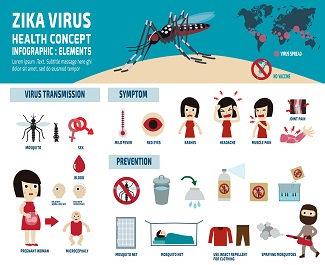During pregnancy, your immune system is naturally suppressed in order to avoid attacking the fetus. With the immune system in an altered state, pregnant women will be more susceptible to flu.
Getting the flu while pregnant can lead to more serious complications such as pneumonia. In fact, pregnant women are more likely to be hospitalized from complications of the flu than non-pregnant women of the same age
Studies of 2009 flu pandemic indicated that having flu while pregnant increased the risk of premature birth, infant death, and hospitalization. Some studies also showed that it increased the risk of miscarriage and low birth weight.
A common flu symptom is a fever, which may be associated with neural tube defects and other adverse outcomes for a developing baby.
It is therefore important for pregnant women to prevent getting the flu during pregnancy.
Symptoms of flu
Symptoms of the flu include the followings:
- Headache
- Runny nose
- Fever
- Cough
- Sore throat
- General weakness and fatigue
- Shortness of breath
- Occasional diarrhea or vomiting
- Sudden chills
- Body aches
How can I prevent getting the flu during pregnancy?
There are many measures that you can take to prevent getting the flu.
Health authorities around the world such as the Centers for Diseases Control and Prevent, and the American Academy of Pediatrics (AAP) unanimously recommends pregnant woman to get a flu vaccine. The flu vaccine will lower the risk of catching the flu during pregnancy and it is safe for pregnant women at all stages of pregnancy.
A recent study published in Clinical Infectious Disease showed that getting a flu shot reduced a pregnant woman’s risk of being hospitalized with flu by an average of 40 percent. Pregnant women who get a flu vaccine are also helping to protect their babies from flu illness for the first several months after their birth when they are too young to get vaccinated.
Practicing good hygiene habits can also help to prevent getting flu.
- Avoid close contact with people who are sick. You may also consider wearing a face mask if your immune system is down. If your spouse, family members or colleagues are down with the flu, it is best for you to minimize contact with them.
- Washing your hands often will help protect you from germs. If soap and water are not available, use an alcohol-based hand rub.
- Avoid rubbing eyes with your hands.
- Routinely clean frequently touched objects and surfaces, including doorknobs, keyboards, and phones, to help remove germs.
- Boost your immune system through a balanced diet. Though no foods have been proven to prevent the flu, eating foods rich in vitamin C and zinc may help boost your immune system and fight infections faster.
- Drinking plenty of water can also help to prevent getting flu. By having sufficient fluid, you keep -mucous membranes, your first line of defense against germs, in good form.
- To prevent the flu and other infections, you may do some appropriate exercises as recommended by your gynecologist. It is also important for you to get enough rest so that your immune system remains strong.
What to do if I catch the flu during pregnancy?
If you began feeling sick with symptoms of flu, you should contact your doctor as soon as possible as antiviral drugs work best when started early (within 48 hours after symptoms start). Your doctor will prescribe you pregnancy-safe antiviral medications to treat the flu. Antiviral drugs can make your flu illness milder and make you feel better faster. They may also prevent serious health problems that can result from flu illness.
In addition, you are advised not to self-medicate such as taking over-the-counter medicine as it could delay proper diagnosis and treatment.
In addition, the followings may help keep you comfortable when you’re down with the flu.
- Having enough rest.
- Drinking plenty of fluids.
- Including immune-boosting vitamin C foods in your balanced diet. These include oranges, grapefruit, kiwis, pineapple, blackberries, raspberries, tomatoes, kale, broccoli, and spinach. Food that is rich in zinc such as lean red meat, skinless chicken breast, fortified cereal, eggs, chickpeas, spinach, broccoli, kale and pumpkin seeds can also improve your immune system.
As always, ring your doctor if you have any questions.
Subscribe to receive newsletter on pregnancy and parenting in Singapore.


